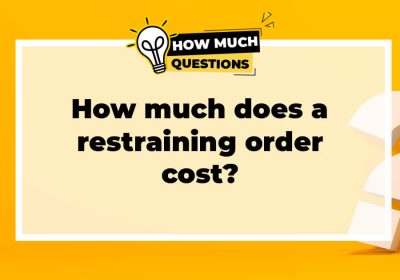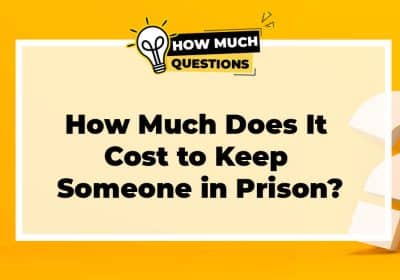
Bail for Domestic Violence: Understanding the Cost and Process
Domestic violence is a serious offense that can have severe consequences. When someone is charged with domestic violence, they may be arrested and taken into custody. In such cases, the issue of bail arises. Bail is an amount of money that must be paid to secure the release of the accused until their trial. In this article, we will delve into the topic of bail for domestic violence cases, exploring the process, factors that influence bail amounts, and understanding the cost involved.
What is Bail and How Does it Work?
Bail is a legal mechanism that allows an accused person to be released from custody while awaiting trial. It serves as a guarantee that the individual will return to court for their proceedings. Bail can be in the form of cash, a bail bond, or other types of security given to the court.
Bail Basics
When a person is arrested for domestic violence, they are typically taken to a police station for booking. After the booking process is complete, the accused may have the opportunity to post bail. Bail can be set at different amounts depending on the circumstances of the case and the judge's discretion. A bail hearing is held to determine the appropriate bail amount and any conditions that need to be met for release.
During a bail hearing, the judge considers various factors, including the severity of the charges, the defendant's criminal history, flight risk, and public safety concerns. Based on these factors, the judge decides whether to grant bail and sets the bail amount.
Bail for Domestic Violence Cases
Domestic violence charges encompass a range of offenses, including assault and battery, violation of restraining orders, and more. The specific type and severity of the charges play a role in determining the bail amount. Additionally, certain guidelines are followed to ensure consistency in bail decisions.
Domestic Violence Charges and Bail
The charges filed in domestic violence cases can vary depending on the jurisdiction, but common charges include assault and battery, domestic assault, and violating restraining orders. These charges reflect the nature of the offense and its impact on the victim. The severity of the charges affects the bail amount, with more serious charges typically resulting in higher bail.
Determining Bail Amount for Domestic Violence
Bail amounts for domestic violence cases are determined based on several factors. One primary consideration is the bail schedule, which provides a guideline for setting bail based on the type of offense. However, judges have discretion to deviate from the bail schedule based on the specific circumstances of the case.
Other factors influencing the bail amount include assessing risk factors such as the potential threat to the victim, victim impact statements, and any aggravating or mitigating factors. Aggravating factors may include the use of weapons, a history of abuse, or the severity of injuries inflicted. Conversely, mitigating factors could include a lack of prior criminal convictions or evidence of changed circumstances.
Factors Influencing Bail Amount
Apart from the nature and severity of the offense, other factors can influence the bail amount for domestic violence cases.
Criminal Record and Flight Risk
A defendant's criminal record plays a significant role in bail determinations. Previous convictions, particularly those related to violence or failure to appear in court, can lead to higher bail amounts. Additionally, the court considers the defendant's ties to the community, employment status, and financial resources to determine the risk of flight.
Safety of the Victim and the Public
The safety of the victim and the potential risk to the public are paramount concerns when setting bail for domestic violence cases. If the court believes that releasing the accused poses a threat to the victim or the community, it may result in higher bail or the denial of bail altogether. Protective orders and restraining orders can also influence the bail decision.
Understanding Bail Bonds
Bail bonds provide an alternative option for individuals who cannot afford to pay the full bail amount in cash. Bail bond agents, also known as bail bondsmen, assist defendants in securing their release by posting a bond on their behalf.
Types of Bail Bonds
Various types of bail bonds are available, including cash bail, surety bonds, property bonds, and release on recognizance (ROR). Cash bail requires the full amount to be paid in cash, while surety bonds involve working with a bail bond agent who charges a premium fee, usually a percentage of the total bail amount. Property bonds allow the use of property as collateral, and ROR allows release without requiring any payment.
Costs Associated with Bail Bonds
When using a bail bond, defendants are required to pay a non-refundable premium fee to the bail bond agent. This fee is typically a percentage of the total bail amount and serves as compensation for the risk taken by the agent. Collateral may also be required to secure the bond, such as property or other valuable assets. It is essential for defendants to understand the terms and conditions of the bail bond agreement, including any repayment terms if collateral is used.
Can Bail Amount be Reduced?
In some situations, it may be possible to have the bail amount reduced. Defendants or their legal representation can request a bail reduction by presenting a strong defense and demonstrating changed circumstances. Hiring a defense attorney who specializes in domestic violence cases can provide valuable guidance in navigating the bail modification process. Additionally, alternative release options such as pretrial release programs, electronic monitoring, or supervised release may be considered as alternatives to traditional bail.
Conclusion
Understanding the process and cost of bail for domestic violence cases is crucial for both defendants and their families. Bail amounts are determined based on various factors, including the severity of charges, criminal history, flight risk, and concerns for public safety. Bail bonds provide an alternative option for those who cannot afford the full bail amount, but they come with associated costs and obligations. If facing domestic violence charges, seeking the assistance of an experienced defense attorney can help navigate the legal process effectively and potentially explore options for reducing bail or seeking alternative release programs.
In summary, when it comes to bail for domestic violence, the specific circumstances of the case and the judge's discretion play a significant role in determining the bail amount. It is essential to consult with legal professionals to understand the specific laws and guidelines in your jurisdiction regarding bail for domestic violence cases.
Frequently Asked Questions
How much is bail for domestic violence?
The amount of bail for domestic violence cases can vary depending on several factors, including the severity of the offense, the defendant's criminal history, and the jurisdiction where the arrest took place. It is important to note that bail amounts are determined by judges and can vary significantly from case to case. Generally, domestic violence offenses are taken very seriously, and bail amounts can range from a few thousand dollars to tens of thousands of dollars. However, it is advisable to consult with a legal professional or contact the local court system for specific information regarding bail amounts for domestic violence cases in your jurisdiction.
How is bail determined for domestic violence charges?
When determining bail for domestic violence charges, judges take into consideration various factors, including the nature and severity of the alleged offense, the defendant's criminal history, the risk of flight, and the potential danger posed to the alleged victim or community. The judge assesses the information provided by the prosecution and defense, along with any relevant evidence or witness testimonies, to make an informed decision. Additionally, judges may consider the defendant's ties to the community, employment status, financial resources, and any past failures to appear in court. It is essential to remember that each case is unique, and the bail amount is ultimately at the discretion of the judge overseeing the case.
Can bail be denied for domestic violence charges?
Yes, bail can be denied for domestic violence charges under certain circumstances. Judges have the authority to deny bail if they believe that releasing the defendant would pose a threat to the alleged victim or the community at large. Factors that may contribute to a bail denial include the severity of the alleged offense, evidence of a pattern of domestic violence, prior convictions, or pending charges related to domestic violence. Additionally, if the judge determines that the defendant is a flight risk or is likely to interfere with the judicial process, they may choose to deny bail. It is important to consult with a legal professional for specific information regarding bail denial in domestic violence cases within your jurisdiction.
Are there alternatives to bail for domestic violence charges?
Yes, there are alternatives to traditional cash bail for domestic violence charges. Some jurisdictions offer pretrial release programs or supervised release options, where defendants are released under certain conditions rather than paying a monetary bail amount. These conditions may include regular check-ins with a pretrial services officer, electronic monitoring, stay-away orders, mandatory counseling or anger management programs, or restrictions on contact with the alleged victim. The availability and specific details of these alternative programs may vary depending on the jurisdiction. It is advisable to consult with a legal professional or contact the local court system for information regarding alternative options to bail in domestic violence cases in your area.
What happens if I can't afford the bail for domestic violence charges?
If you cannot afford the bail for domestic violence charges, you may have several options. It is important to discuss your situation with a legal professional who can provide specific guidance based on your jurisdiction. In some cases, you may be able to work with a bail bondsman who can post bail on your behalf in exchange for a fee, typically a percentage of the total bail amount. Bail bondsmen often require collateral, such as property or assets, as security for the bail bond. Additionally, you may be eligible for a court-appointed attorney who can help advocate for lower bail or explore alternative release options. It is crucial to seek legal advice to understand your rights and available options if you are unable to afford the bail for domestic violence charges.
Can bail be reduced for domestic violence charges?
Yes, bail can be reduced for domestic violence charges, but it typically requires a formal request to the court. The defendant's attorney can file a motion requesting a bail reduction hearing, where they present arguments and evidence supporting the need for a lower bail amount. Factors that may contribute to a successful bail reduction request include the defendant's strong ties to the community, lack of a prior criminal record, employment stability, and evidence that challenges the severity of the allegations. The judge will consider these factors, along with any objections from the prosecution, in determining whether to grant a bail reduction. It is essential to consult with a legal professional for guidance on the bail reduction process specific to domestic violence cases in your jurisdiction.
Can bail be paid with a credit card for domestic violence charges?
The acceptance of credit cards for bail payment can vary depending on the jurisdiction and the specific policies of the court or bail bondsman. In some cases, bail bonds companies may accept credit card payments, allowing you to pay the bail amount using your credit card. However, it is important to note that there may be additional fees or restrictions associated with using a credit card for bail payment. It is advisable to contact a bail bondsman or the local court system to inquire about their accepted payment methods and any associated terms or conditions.
What happens to the bail money after the domestic violence case is resolved?
Once the domestic violence case is resolved, the fate of the bail money depends on the specific circumstances and the outcome of the case. If the defendant complies with all the conditions of their release, attends all court hearings, and does not violate any court orders, the bail money is typically returned in full, regardless of the case's outcome. However, if the defendant fails to comply with the conditions of their release or does not appear in court, the bail money may be forfeited, and a warrant may be issued for their arrest. It is essential to consult with a legal professional or contact the local court system for information on how the bail money will be handled in your jurisdiction after the resolution of a domestic violence case.
Can I get my bail money back if the domestic violence charges are dropped?
If the domestic violence charges are dropped, dismissed, or the defendant is acquitted, it is generally possible to get the bail money back. However, the specific process and requirements for the return of bail funds may vary depending on the jurisdiction. In some cases, the defendant or their legal representative may need to file a formal request or motion with the court to initiate the return of the bail money. It is advisable to consult with a legal professional or contact the local court system for guidance on the necessary steps to reclaim the bail money in your jurisdiction if the domestic violence charges are dropped.
If you want to know other articles similar to Bail for Domestic Violence: Understanding the Cost and Process you can visit the category Legal and Professional Services.
- What is Bail and How Does it Work?
- Bail for Domestic Violence Cases
- Factors Influencing Bail Amount
- Understanding Bail Bonds
- Can Bail Amount be Reduced?
- Conclusion
- Frequently Asked Questions
- How much is bail for domestic violence?
- How is bail determined for domestic violence charges?
- Can bail be denied for domestic violence charges?
- Are there alternatives to bail for domestic violence charges?
- What happens if I can't afford the bail for domestic violence charges?
- Can bail be reduced for domestic violence charges?
- Can bail be paid with a credit card for domestic violence charges?
- What happens to the bail money after the domestic violence case is resolved?
- Can I get my bail money back if the domestic violence charges are dropped?
Leave a Reply







You might be interested in